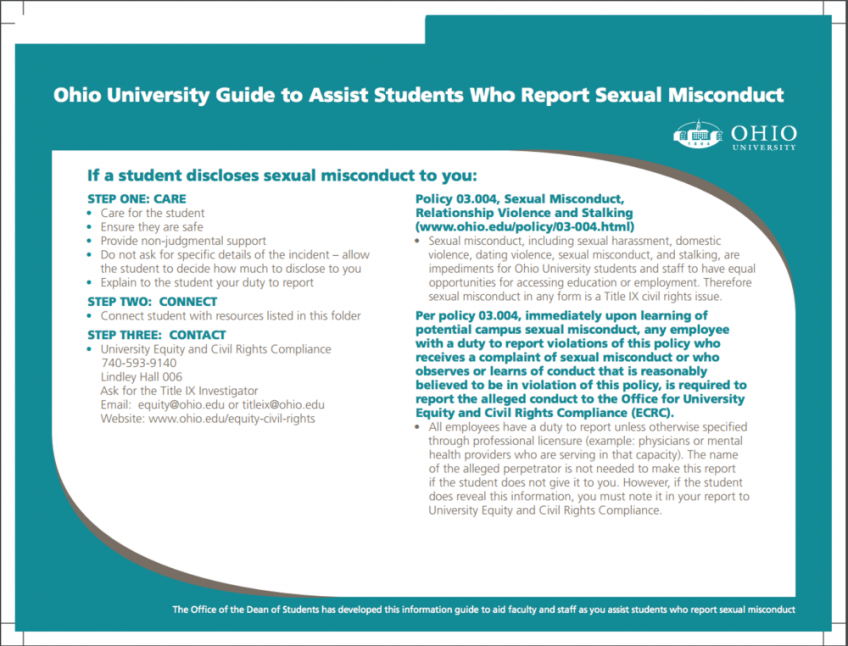OpenAI And ChatGPT: Under Federal Trade Commission Investigation

Table of Contents
- FTC's Allegations Against OpenAI and ChatGPT
- Unfair or Deceptive Trade Practices
- Data Privacy and Security Concerns
- Potential Consequences of the FTC Investigation
- Financial Penalties
- Changes to ChatGPT's Functionality
- Impact on AI Development and Regulation
- The Broader Implications for the AI Industry
- Increased Scrutiny for AI Companies
- The Need for Responsible AI Development
- Conclusion
FTC's Allegations Against OpenAI and ChatGPT
The FTC's investigation into OpenAI and ChatGPT centers around allegations of unfair or deceptive trade practices and concerns regarding data privacy and security.
Unfair or Deceptive Trade Practices
The FTC alleges that OpenAI engaged in unfair or deceptive trade practices related to ChatGPT's development and deployment. These allegations likely stem from several key areas:
- Concerns about the dissemination of false information: ChatGPT, like other large language models (LLMs), can sometimes generate inaccurate or misleading information, potentially causing harm to users who rely on its responses. This raises concerns about the responsibility of OpenAI in ensuring the accuracy and reliability of the chatbot's output. The FTC may investigate whether OpenAI adequately warned users about these limitations.
- Potential for reputational harm to individuals: ChatGPT's ability to generate text has raised concerns about its potential to be used to spread misinformation or defame individuals. The FTC is likely investigating whether OpenAI has sufficient safeguards in place to prevent such misuse. This includes examining the processes for handling complaints and addressing reputational damage caused by the chatbot.
- Lack of adequate safeguards against misuse: The ease with which ChatGPT can be used for malicious purposes, such as generating phishing emails or creating fake reviews, is a major concern. The FTC's investigation will likely scrutinize OpenAI's efforts to prevent and mitigate these risks. This includes examining the effectiveness of its content moderation policies and the measures taken to detect and prevent abuse.
Data Privacy and Security Concerns
Another crucial aspect of the FTC's investigation revolves around OpenAI's data handling practices and the security of user information. Key concerns include:
- Concerns about the collection and use of personal data: The training data used to develop ChatGPT likely includes vast amounts of personal information scraped from the internet. The FTC is likely investigating whether OpenAI's data collection practices comply with relevant data privacy regulations, such as the California Consumer Privacy Act (CCPA) and other state and federal laws.
- Potential violations of data privacy regulations: OpenAI's data usage practices are under scrutiny to ensure they comply with all applicable laws. This includes analyzing how user data is stored, processed, and protected against unauthorized access. The investigation may focus on whether OpenAI obtained proper consent for data usage and provided adequate transparency to users.
- Security vulnerabilities leading to data breaches: The FTC is likely examining OpenAI's security measures to ensure the protection of user data against breaches and unauthorized access. Any past incidents or vulnerabilities will be thoroughly reviewed to assess OpenAI's compliance with industry best practices and data security standards.
Potential Consequences of the FTC Investigation
The OpenAI ChatGPT FTC investigation carries significant potential consequences for OpenAI and the broader AI industry.
Financial Penalties
If found guilty of violating FTC regulations, OpenAI could face substantial financial penalties.
- Fines could significantly impact OpenAI's financial stability: Large fines could severely strain OpenAI's resources and potentially impact its future development plans. The scale of the fines will depend on the severity of the violations and the extent of the harm caused.
- Potential for legal costs further impacting resources: The legal process itself will involve substantial costs for OpenAI, further impacting its financial resources and potentially diverting attention and resources from its core business.
Changes to ChatGPT's Functionality
The FTC might mandate changes to ChatGPT's design and functionality to mitigate risks.
- Implementation of stricter content moderation policies: This could involve more robust filtering systems to prevent the generation of harmful or inappropriate content, requiring increased investment in human moderation and AI-powered content filtering tools.
- Increased transparency regarding data usage: OpenAI may be required to provide more detailed information to users about how their data is collected, used, and protected. This could involve clearer privacy policies and enhanced user controls over data sharing.
- Improved mechanisms for user redress: OpenAI might be required to establish more effective mechanisms for users to report issues, file complaints, and seek redress for any harm caused by ChatGPT.
Impact on AI Development and Regulation
This investigation sets a crucial precedent for future AI regulation.
- Increased scrutiny of other large language models (LLMs): The outcome of this investigation will likely influence how regulators approach other LLMs and AI technologies. This increased scrutiny will encourage greater accountability and ethical considerations in AI development.
- Potential for stricter government oversight of AI development: This investigation could lead to more comprehensive regulations and oversight of the AI industry, potentially including stricter licensing requirements, data privacy rules, and ethical guidelines.
- Influencing the development of ethical guidelines for AI: The investigation and its aftermath will likely fuel the development and adoption of industry-wide ethical guidelines for AI development and deployment, promoting responsible innovation and preventing future controversies.
The Broader Implications for the AI Industry
The OpenAI ChatGPT FTC investigation has far-reaching implications for the entire AI industry.
Increased Scrutiny for AI Companies
The investigation signals a heightened level of regulatory interest in the AI sector.
- Increased pressure on AI companies to prioritize ethical considerations: This investigation highlights the need for AI companies to integrate ethical considerations into every stage of the AI lifecycle, from design and development to deployment and maintenance.
- A potential chilling effect on innovation due to increased regulatory uncertainty: Increased regulatory scrutiny and uncertainty may slow down innovation in the AI industry as companies navigate new legal and ethical landscapes.
The Need for Responsible AI Development
The investigation underscores the critical need for responsible AI development practices.
- Emphasis on transparency and accountability in AI systems: AI companies must prioritize transparency in their algorithms and data usage, providing clear explanations of how their systems work and what data they use. Accountability mechanisms for addressing issues and mitigating risks are also crucial.
- Prioritizing user safety and data privacy: User safety and data privacy should be central considerations throughout the entire AI development process. Robust security measures, transparent data handling practices, and effective complaint mechanisms are vital.
Conclusion
The FTC's investigation into OpenAI and ChatGPT marks a significant moment for the AI industry. The potential consequences, ranging from financial penalties to significant changes in ChatGPT's functionality, highlight the crucial need for responsible AI development and the increasing regulatory scrutiny of this rapidly evolving technology. Staying informed about the OpenAI ChatGPT FTC investigation is crucial for anyone involved in or impacted by AI. Keep up-to-date on the latest developments surrounding the OpenAI ChatGPT FTC investigation and its impact on the future of artificial intelligence.

 112
112
 Jackbit Casino Review A Top Bitcoin Casino For Us Players
Jackbit Casino Review A Top Bitcoin Casino For Us Players
 The Impact Of Multiple Affairs And Sexual Misconduct Allegations On Donald Trumps Presidential Campaign
The Impact Of Multiple Affairs And Sexual Misconduct Allegations On Donald Trumps Presidential Campaign
 Limited Stock Boston Celtics Finals Gear Under 20
Limited Stock Boston Celtics Finals Gear Under 20
 Knicks Coach Thibodeau Calls For Increased Resolve After Crushing Loss
Knicks Coach Thibodeau Calls For Increased Resolve After Crushing Loss
